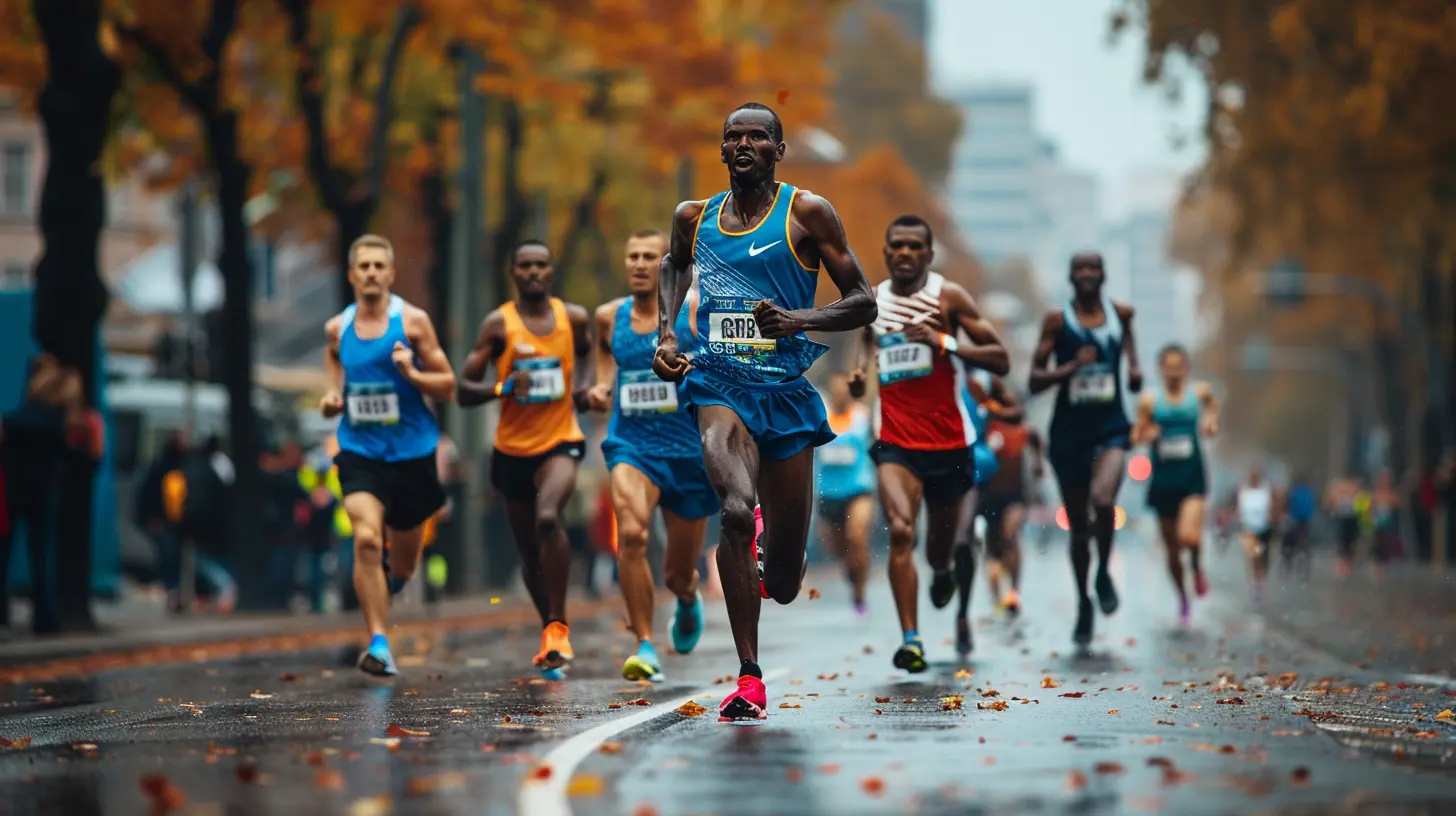29 March 2025
When you think about running, what comes to mind first? Maybe it's your legs, lungs, or even your stamina. But what if I told you that one of the most critical aspects of running performance doesn’t even involve your legs? Surprising, right? I’m talking about core strength, the unsung hero of running. Whether you're a seasoned marathoner or just getting started with your first 5K, strengthening your core can have a massive impact on your running efficiency, endurance, and even injury prevention.
Let's dive into why core strength is so important for runners and how it can elevate your running game.

What Exactly Is Your Core?
Before we get into why it’s so important, let’s define what we mean by "core." Contrary to popular belief, your core isn’t just your abs or a six-pack. It includes a whole network of muscles that span your torso—everything from your hips, lower back, obliques, and even your glutes.Think of your core like the central hub of a wheel. Your arms and legs are like the spokes that extend from it. If that hub (your core) is weak or unstable, the entire wheel (your body) can wobble and lose balance. And trust me, no one wants to run on a wobbly wheel!

Why Core Strength Matters for Runners
So, why should runners care so much about core strength? Isn’t running all about powerful legs and good cardio? While those things are essential, they only tell part of the story. Here’s why your core plays such a vital role:1. Improved Running Form
Have you ever noticed how after a few miles, your posture starts to fall apart? Your shoulders hunch, your back rounds, and suddenly your form looks more like the Hunchback of Notre Dame than a sleek runner. A strong core helps you maintain proper posture and alignment over long distances.When your core is engaged, you’re less likely to slouch or "collapse" as you fatigue. This means you'll keep better form, resulting in a more efficient stride and less wasted energy. Think of your core as your body's natural stabilizer, keeping everything in check so you can focus on putting one foot in front of the other.
2. Enhanced Balance and Stability
Every time your foot hits the ground, your body is balancing on one leg. Now, imagine doing that thousands of times over the course of a run. Without a strong core, your body has a harder time staying balanced, especially on uneven terrain or while making quick movements during a race.A strong core allows your body to quickly adjust and stabilize with each stride. It also helps reduce the risk of falling or twisting an ankle, which is especially important if you enjoy trail running or tackling unpredictable surfaces.
3. Injury Prevention
One of the major benefits of core strength is injury prevention—something every runner cares about. A weak core can lead to overcompensation from other muscles, which can create imbalances and, eventually, injuries.Common runner injuries like IT band syndrome, lower back pain, and even knee problems can often be traced back to poor core stability. When your core is strong, your body moves more efficiently, reducing the risk of strain or overuse in other areas. It’s like having a strong foundation for a house—without it, the walls and roof (your legs and arms) won’t hold up as well.
4. Better Breathing
Believe it or not, your core also affects your breathing. A stable core helps you maintain an upright posture, which opens up your diaphragm and lungs, allowing for deeper, more efficient breaths. And we all know that better breathing means better endurance!When you’re hunched over or your core is weak, it compresses your chest, making it harder to take in the oxygen your muscles need. Strengthening your core can help you take fuller breaths, which becomes especially important during those long, grueling runs or uphill battles.
5. Improved Speed and Efficiency
Who doesn’t want to run faster? A strong core won’t just help you avoid injuries or improve your form; it can actually make you faster. Here’s how: when your core is weak, your body tends to move inefficiently. You expend extra energy just trying to keep everything in place.But when your core is strong, your body moves in a more controlled and efficient manner. This means less wasted energy, which you can now channel into driving your legs forward and increasing your speed. It’s kind of like upgrading from an old, clunky car to a sleek sports car—everything just runs smoother and faster.

How to Strengthen Your Core for Running
Okay, so now that you know how important core strength is, you’re probably wondering: how do I actually strengthen my core? The good news is that you don’t need fancy gym equipment or hours of workout time to see improvements. Here are some simple but effective exercises that target the key muscles runners need.1. Planks
Planks are one of the best all-around core exercises. They engage your entire torso, from your shoulders to your hips, and even your glutes. Start by holding a forearm plank for 30 seconds, gradually increasing the time as you get stronger. Make sure to keep your body in a straight line from head to heels—no sagging in the middle!2. Russian Twists
This exercise targets your obliques, which are crucial for stabilizing your body while running. Sit on the floor with your knees bent, lean back slightly, and twist your torso from side to side. For an extra challenge, hold a weight or a medicine ball.3. Leg Raises
Leg raises are fantastic for your lower abs, which often get neglected in traditional core workouts. Lie flat on your back with your arms by your sides, and slowly lift your legs until they’re perpendicular to the floor. Lower them back down without letting them touch the ground, and repeat.4. Bird-Dog
This is a great exercise for improving balance and stability. Start on your hands and knees in a tabletop position. Extend your right arm and left leg straight out, then bring them back to the starting position. Repeat on the other side. Focus on keeping your core engaged and your movements slow and controlled.5. Bicycle Crunches
Bicycle crunches are a dynamic way to engage both your upper and lower abs, as well as your obliques. Lie on your back, lift your legs, and bring your opposite elbow to your knee in a twisting motion. Keep alternating sides, mimicking a pedaling movement.6. Hip Bridges
Don’t forget about your glutes! Lie on your back with your knees bent and feet flat on the floor. Lift your hips up toward the ceiling, squeezing your glutes at the top, and then lower back down. This exercise not only strengthens your glutes but also engages your lower back and core.
How Often Should Runners Train Their Core?
The million-dollar question: how often should you be working on your core? The good news is, you don’t need to spend hours every day to see results. Aim for 2-3 core workouts per week, with each session lasting about 10-15 minutes. You can even incorporate these exercises into your post-run cooldown routine.Remember, consistency is key. Just like with running, you’ll see the best results from regularly dedicating time to your core strength. And the beauty of core work is that it can be done virtually anywhere—whether you’re at home, the gym, or even on a yoga mat at the park.
The Long-Term Benefits of Core Strength for Runners
Building core strength isn’t just about crushing your next race—it has long-term benefits that can keep you running stronger, longer. A strong core contributes to better overall athletic performance, improved posture in daily life, and a reduced risk of chronic injuries.Plus, let’s be honest—having a strong core has some aesthetic perks too. Who doesn’t love a toned midsection?
But the real victory lies in how much smoother and enjoyable your runs will feel. When your core is strong, you’ll feel more in control, more balanced, and less fatigued. That means you can focus on the joy of running, whether you're chasing a personal best or just enjoying the fresh air on a Saturday morning.
Final Thoughts
Core strength might not be the first thing you think of when it comes to running, but it should definitely be on your radar. From better form and injury prevention to improved speed and efficiency, a strong core is the foundation of a successful running routine.So, the next time you lace up your shoes and hit the road, remember: it’s not just about your legs. Your core is working hard behind the scenes, supporting every step you take. Give it the attention it deserves, and you’ll be amazed at how much it can improve your performance.
###


